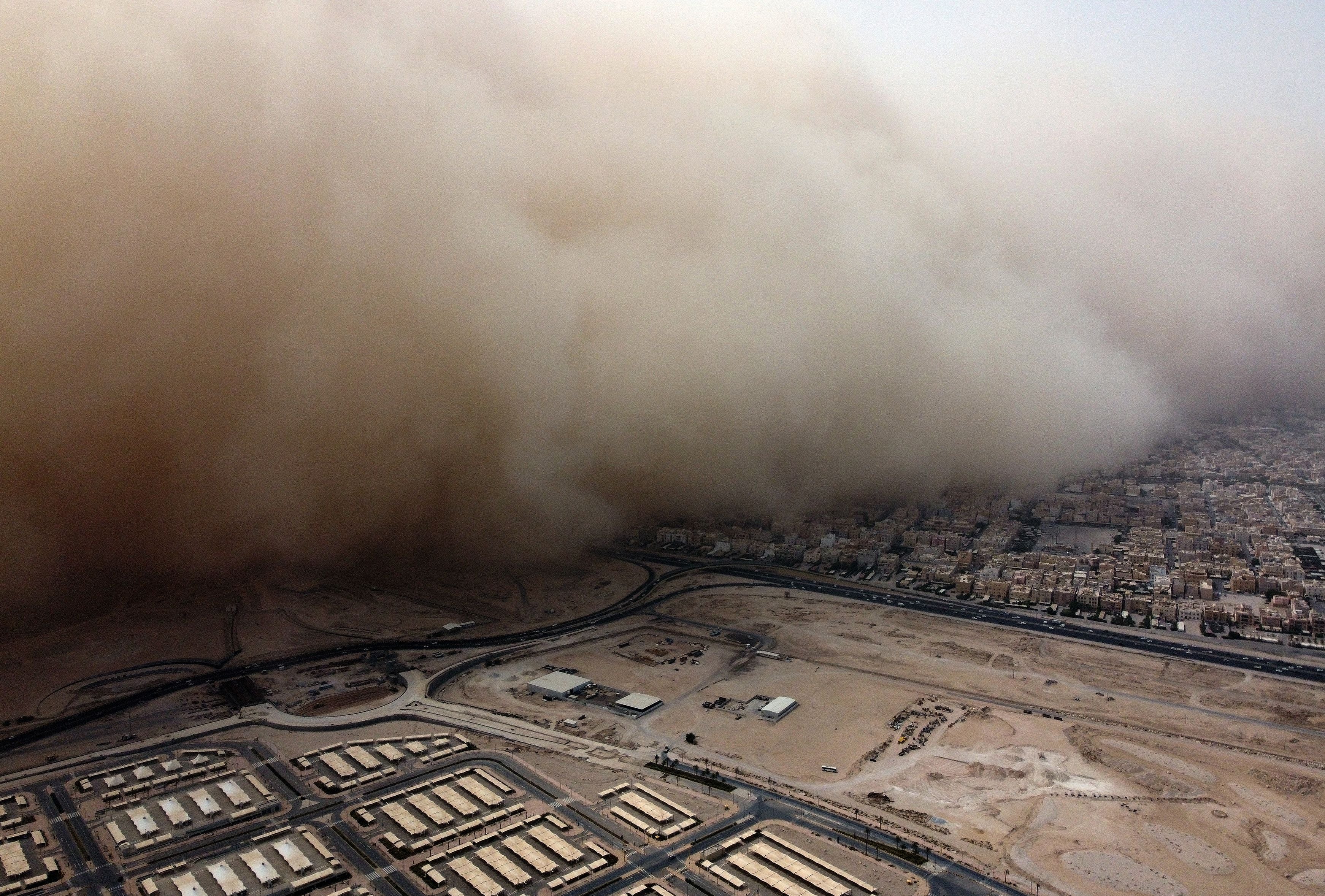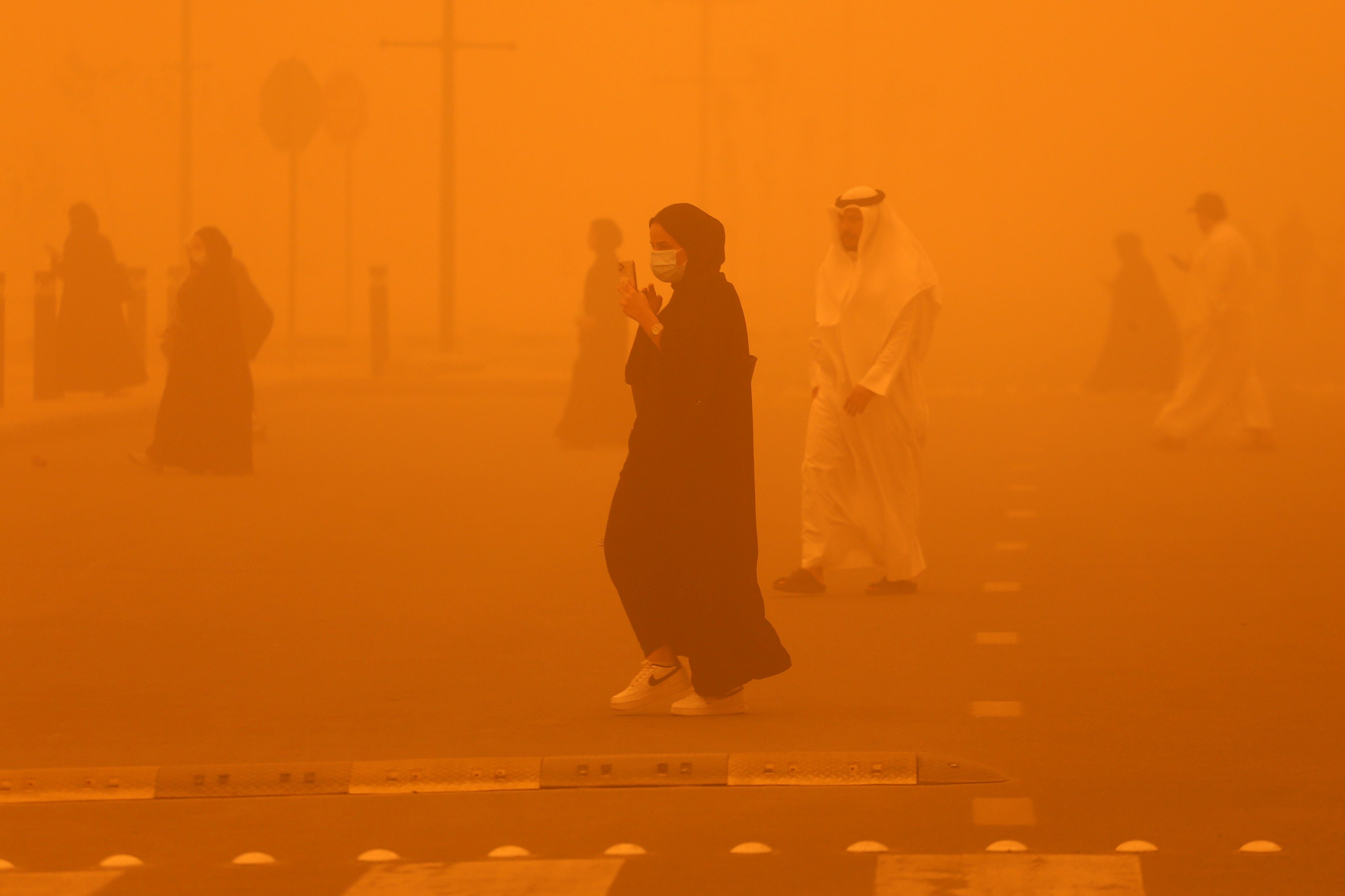Flights disrupted and people urged to stay home as sandstorms hit Middle East
Sandstorms are typical during summers but in recent months, Iraq, Iran, Syria, Kuwait, and Saudi Arabia have been battered by an unprecedented number
Your support helps us to tell the story
From reproductive rights to climate change to Big Tech, The Independent is on the ground when the story is developing. Whether it's investigating the financials of Elon Musk's pro-Trump PAC or producing our latest documentary, 'The A Word', which shines a light on the American women fighting for reproductive rights, we know how important it is to parse out the facts from the messaging.
At such a critical moment in US history, we need reporters on the ground. Your donation allows us to keep sending journalists to speak to both sides of the story.
The Independent is trusted by Americans across the entire political spectrum. And unlike many other quality news outlets, we choose not to lock Americans out of our reporting and analysis with paywalls. We believe quality journalism should be available to everyone, paid for by those who can afford it.
Your support makes all the difference.Flight services were disrupted and several people had to be hospitalised after sandstorms engulfed parts of the Middle East on Monday.
From Iran in the east to Saudi Arabia in the west, the sky turned bright orange as a thick veil of grit fell over the region.
Sandstorms are a typical phenomenon during the summer, but in recent months an unprecedented number of them have swept parts of Iraq, Iran, Syria, Kuwait, and Saudi Arabia.
Three people in Syria and one person in Iraq were killed in the sandstorms, which also sent thousands to hospitals with breathing difficulties. Storms also led to the closure of airports, schools and government offices.
Iraqi authorities declared Monday a national holiday and urged government workers and residents to stay home in anticipation of the tenth storm in the last two months.
Over 1,000 people were hospitalised across the nation with respiratory problems, health ministry spokesperson Seif al-Badr told AFP. The Iraqi health ministry said it has stockpiled canisters of oxygen at facilities in hard-hit areas.
The Kuwait international airport suspended all flights on Monday for the second time this month because of dust and low visibility.

“It’s a region-wide issue but each country has a different degree of vulnerability and weakness,” Jaafar Jotheri, a geoarchaeologist at the University of Al-Qadisiyah in Baghdad told the Associated Press.
Environmental experts have claimed that the rise in pollution, climate change and government mismanagement has led to the rise in the frequency of sandstorms.
Syrian medical departments were put on alert as the sandstorm hit the eastern province of Deir el-Zour, which borders Iraq.

Mr Jotheri said that desertification exacerbated by record-low rainfall is adding to the intensity of storms in Iraq.
“Because of 17 years of mismanagement of water and urbanisation, Iraq lost more than two-thirds of its green cover,” he said. “That is why Iraqis are complaining more than their neighbours about the sandstorms in their areas.”
Last week, Iran shut down schools and government offices in capital Tehran over a sandstorm that hit hardest in the nation’s southwest desert region of Khuzestan. Dozens of flights out of western Iran were cancelled or delayed, and over 800 people sought treatment for breathing difficulties.
Saudi Arabia’s meteorological association predicted that visibility would drop to zero on the roads in capital Riyadh this week. Emergency rooms in the city were flooded with 1,285 patients this month complaining of breathing problems.

Join our commenting forum
Join thought-provoking conversations, follow other Independent readers and see their replies
Comments